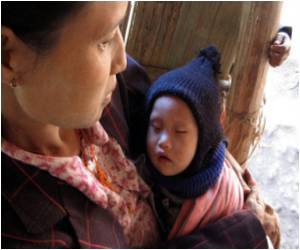Homelessness is on the rise in Australia.
A report by Homelessness Australia, a nonprofit, says, “Each day nearly 1 in every 200 Australians is homeless, without safe, secure or affordable housing. Last year, 105 000 Australians experienced homelessness. One in every 154 Australians sought help from a homeless assistance service and one in every 39 children aged under 4 slept in a homeless service. 23% of Australia’s homeless are children – almost one in four homeless people is under 18. Of every 42 Australian children under four, one has experienced homelessness. Every day, half the people who request immediate accommodation from the homeless service system are turned away. Two in every 3 children who need support are also turned away, as are almost 80% percent of families.”Back in May 2008, Prime Minister Kevin Rudd described homelessness in Australia as a "national obscenity.” But such fiery rhetoric has not translated into action on the ground, it looks like.
Housing Minister Tanya Plibersek concedes the situation is grim.
"Many service providers have been telling me that there has been an increase in the number of Australians seeking help to keep a roof over their head since the onset of the global financial crisis," she told The Weekend Australian.
But she also sounded confident that the government could halve the number by 2020.
The opposition, though, is not convinced by such protestations. “We need effective solutions to this problem, not a target 10 years into the future which may or may not be met," opposition housing spokesman Gary Humphries said in a statement on Saturday.
Advertisement
"You can't eliminate homelessness if general housing affordability is deteriorating, and with interest rates surging that is precisely what is in the offing," he said.
Advertisement
"I call on the minister to return this issue to the priority Kevin Rudd said it deserved in May 2008, and make a guarantee that there will be less homelessness in our community by next Christmas."
Homelessness.org’s report stresses, “Homelessness results in social and economic costs to individuals, families, communities and our nation. Home-lessness forces people away from their family, friends and communities. It makes it difficult to maintain school or further study, and leaves people vulnerable to long- term unemployment and chronic ill-health. Homeless Australians are often excluded from participation in the social, recreational, cultural and economic life of our communities. Homelessness means that every day almost 1 in every 200 Australians live without their most fundamental human rights.”
However, the organization also acknowledges, “Over the course of 2009, both the Australian and state/territory Governments have commenced the roll out of a number of key measures earmarked in the White Paper The Road Home. Specialist Homelessness Services are now funded through the National Affordable Housing Agreement (NAHA) while new initiatives to address homelessness are funded via the Homelessness National Partnership (Homelessness NP).
“In response to what is commonly called the Global Financial Crisis (GFC) the Australian Government allocated some $42 billion in funding for the National Partnership Agreement on the Nation Building and Jobs Plan (Stimulus Package). Initially, this included a significant capital investment of some $6.4 billion for new social housing, though this was recently reduced by $750 million. Nonetheless, it represents the biggest investment in social housing in decades and will finance the construction of a projected 19 200 additional social housing dwellings over 5 years. The new funding environment will mean substantial changes to the homelessness support system. States and territories have substantial responsibilities under these instruments and have been afforded much greater flexibility over how they will allocate funding for homelessness programs and services.”
Source-Medindia
GPL









